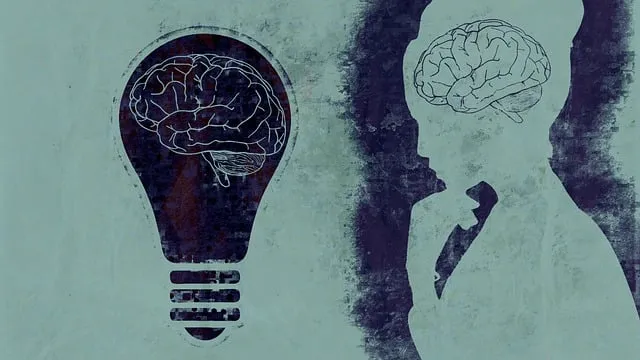Boulder Kaiser Permanente leads in transforming mental health care through comprehensive psychiatry reviews that combine traditional assessments with innovative tools like mental wellness journaling and exercise guidance. Their approach enhances patient comfort, fosters open communication, and improves diagnosis accuracy by integrating stress reduction methods and empathy-building strategies. Backed by leading Boulder Kaiser Permanente psychiatry reviews, this personalized strategy ensures effective treatment plans tailored to individual needs, addressing symptom overlap and subjective assessment challenges in the current mental health diagnosis process.
Mental illness diagnosis accuracy is a critical aspect of healthcare, with significant implications for patient outcomes. This article explores efforts by Boulder Kaiser Permanente to enhance mental health diagnoses. We delve into enhancing diagnosis techniques, including advanced assessment tools and case studies showcasing improved accuracy. Additionally, we examine training programs for psychiatrists and clinicians, emphasizing the importance of ongoing professional development. Patient engagement strategies and feedback mechanisms are also highlighted as key components in improving diagnostic accuracy and treatment plans, drawing from Boulder Kaiser Permanente psychiatry reviews.
- Enhancing Diagnosis Techniques at Boulder Kaiser Permanente
- – Exploring current challenges in mental health diagnosis
- – Implementation of advanced assessment tools and techniques
Enhancing Diagnosis Techniques at Boulder Kaiser Permanente

Boulder Kaiser Permanente has been at the forefront of revolutionizing mental health care through advanced diagnosis techniques. Their psychiatry reviews highlight a multifaceted approach to enhancing accuracy, combining traditional assessments with innovative tools tailored to individual patient needs. By integrating mental wellness journaling and exercise guidance as complementary practices, healthcare professionals gain valuable insights beyond what symptoms alone can reveal. This personalized strategy allows for a more nuanced understanding of patients’ mental states, fostering better-informed diagnoses.
Furthermore, Boulder Kaiser Permanente’s commitment extends to incorporating stress reduction methods and empathy building strategies into the diagnostic process. These techniques not only improve patient comfort during evaluations but also create a supportive environment, encouraging open communication. Such efforts collectively contribute to more accurate mental illness diagnoses, ensuring patients receive appropriate, effective treatment plans tailored to their unique journeys towards optimal mental wellness.
– Exploring current challenges in mental health diagnosis

The current landscape of mental health diagnosis is fraught with challenges that impact accuracy and patient care. One significant hurdle is the complexity of symptoms, which often overlap across various disorders, making differentiation difficult. For instance, depression can manifest differently in individuals, presenting as anxiety or even physical symptoms in some cases. This complexity necessitates a nuanced approach to assessment, where healthcare professionals consider not just clinical signs but also personal history and environmental factors.
Boulder Kaiser Permanente psychiatry reviews highlight these challenges, with studies indicating that misdiagnosis rates remain unacceptably high. This is partly due to the subjective nature of mental health assessments, as well as the influence of societal stigma, which can lead to inaccurate self-reporting or underreporting of symptoms. Enhancing diagnosis accuracy demands a multifaceted strategy, incorporating advanced assessment tools, continuous training for healthcare providers on the latest research and treatment modalities, and promoting positive thinking and stress management techniques that foster emotional intelligence in both patients and practitioners.
– Implementation of advanced assessment tools and techniques

At Boulder Kaiser Permanente, psychiatry reviews highlight a growing emphasis on implementing advanced assessment tools and techniques to enhance mental illness diagnosis accuracy. These innovative methods go beyond traditional diagnostic criteria, incorporating cutting-edge research and technology to capture nuanced aspects of patient experiences. By leveraging evidence-based practices, healthcare professionals are better equipped to identify subtleties that might be overlooked in standard assessments. This approach ensures a more precise understanding of patients’ unique mental health landscapes, allowing for personalized treatment plans tailored to individual needs.
The integration of advanced assessment tools not only improves diagnosis accuracy but also paves the way for effective interventions. Programs such as Mental Wellness Coaching and Social Skills Training, backed by rigorous research, are being integrated into care models to address specific challenges faced by patients. These initiatives focus on Anxiety Relief, aiming to empower individuals with strategies to manage and overcome anxiety disorders. Such comprehensive approaches reflect a commitment to holistic mental health care, fostering resilience and enhancing overall well-being in the community.
The efforts to enhance mental illness diagnosis accuracy at Boulder Kaiser Permanente, as evidenced by the implementation of advanced assessment tools and techniques, represent a significant step forward in the field. These innovative approaches, tailored to the unique needs of psychiatry, offer promising avenues for improving patient outcomes. By leveraging cutting-edge technology and evidence-based practices, Boulder Kaiser Permanente is setting a standard for excellence in mental health care, as reflected in their esteemed psychiatry reviews. Such initiatives not only benefit individuals seeking treatment but also contribute to the broader goal of fostering more effective and compassionate mental healthcare systems.






